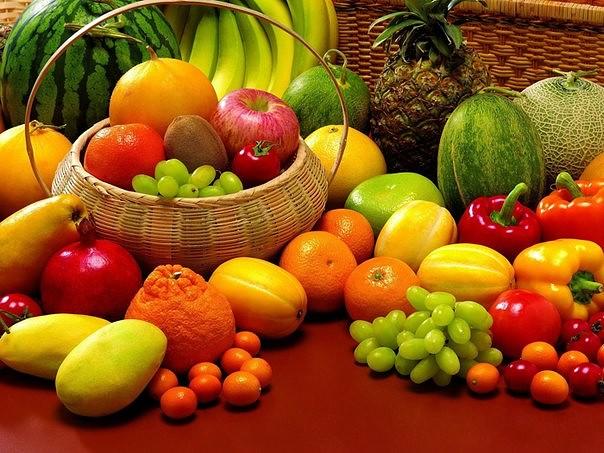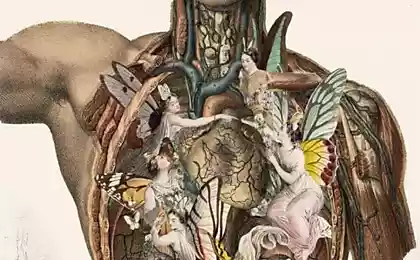706
Plant foods we need and our planet

The world needs a new look at a vegetable diet - Medical Journal of Australia «Medical Journal of Australia (MJA)» published an article that focused on the changes in the world related to the global "ovegetarianivaniem". Author - Rosemary A Stanton, Ph.D., a nutrition specialist. And we have translated it for you in Russian.
The current world food system is unfair and unsustainable, moreover, it creates a huge and costly from a medical point of view, the problem - of 7 billion people, 1.5 billion of the world are overweight, while almost a billion go to bed hungry almost every night
.
Climate change will lead to pressure on food production, especially if growing populations in developing countries will seek to diet "Western-style" with its high content of animal products. Modern "Western diet" also plays a major role in the increasing number of diseases incidence of all kinds, which are currently responsible for 63% of deaths around the world.
Dietary choices affect not only the health, but also greenhouse gas emissions when compared with a similar animal food energy value. Regional differences must be considered in more detail, but, generally speaking, herbal food carries a much lower greenhouse gas emissions than meat, especially ruminants.
That prompted experts on climate change to recommend reducing meat consumption, especially producing methane in large quantities, "cattle" and sheep. The recommendation to reduce the amount of consumption of meat in the diet is based on the principle of consumption of vegetables, legumes, fruits, nuts, and whole grain products, and partially based on Mediterranean dietary patterns, health benefits which have long proved.
"Meatless Monday" - the movement began in 2003 and now on its way by many groups in Europe, Japan, the United States and Canada, as well as Israel and Australia. In 2009, the Belgian city of Ghent was the first to officially adopt the weekly vegetarian day. San Francisco started with Meatless Monday (known as "Vegetarian Day"), and now the main supplier of food service in the US offers a meal of the flesh without its 10 million customers every Monday.
Graduate School of Public Health, Johns Hopkins Bloomberg supported the idea to improve personal health and reduce the ecological footprint. Now, the school provides information and recipes, encouraging people to start each week with healthy, environmentally friendly alternatives to the meat industry.
English is also changing to celebrate the efforts of those who seek for peace. So there is a new word for those who want to reduce the consumption of meat, but do not move to vegetarianism. Such people are called "flexitarians", and they sometimes eat fish or meat, the word "vegivores" - refers to those who eat plant foods, adding the animal in an amount of seasoning
. The world followed a consistent trend away from meat consumption. So far, a minority of people support vegetarianism and its more severe forms, however, the discussion of the relation of flesh consumption to the environment and personal health encourages people to think about these issues. As a result - more people are seeking to reduce the consumption of meat
. How healthy diet, which are partially or completely vegetarian? They can meet the nutritional needs of man? What aspects need special attention? The popularity of these issues in recent years has increased significantly. What is noticeable is the fact that the average person has become more literate in these aspects.
The world is changing. Fears that a diet without meat can mean a lack of protein, can safely go into the past forever. Concerns about the lack of iron and zinc is the place to be, but must be balanced with the risk of many diseases, which are caused by the consumption of meat, but more importantly, if we are committed to fairness, let's not forget about the incredible dangers of animal iron.
World Cancer Research Fund is currently preparing a list of the evidence, we find that high consumption of red meat causes colorectal cancer (Ed -. Rectal cancer). The main reason is just the iron, which is found in the flesh.
The ability of the body to absorb iron, zinc and other minerals in the context of different diets have not been well studied in the past. Previous recommendations, one and all, were based on studies examining a single type of food - omnivorous
. A possible problem that needs to be addressed, is vitamin B12, and omega-3. Their research and the inclusion of herbal products can generate not only ideas, but also a whole range of new alternative food (Ed -.. In the plants do not contain vitamin B12, and omega-3 found in a very limited number of plant products Most Western companies are added. in vegan foods these ingredients by artificial means).
Meals - a complex science, and much has yet to be explained. Type of food is more important than the specific products and plant-derived foods contain hundreds of protective factors. It should focus on the positive aspects of a diet based on plant foods, because they are more important than any negative aspects of the impact of meat on the human body.
It is worth noting, however, that a healthy Mediterranean and Asian inhabitants on average eat far richer variety of plant foods, less meat and processed foods and beverages than adherents "Western diets».
Not all of today need to or want to become vegetarian, but a reduction of our dependence on meat is a good recipe for our own health and the health of our planet. Diets based on foods of plant origin - this is the future, and it is impossible to argue.
Ludovico Benso Preface to the book Luciano Proyetti "Children-vegetarians"
TOPINAMBUR- record holder VITAMINS
























